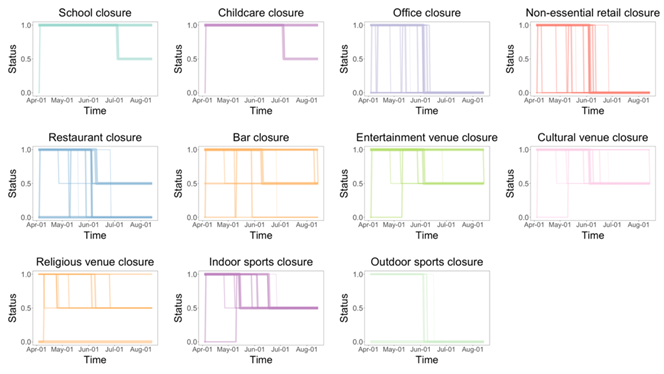How can we contain the spread of COVID19 more effectively?
The team led by Wang Hui investigated 906 cities in Japan, the UK, the US, and Brazil. The research shows that virus spread does not correlate with city scale or population density, but rather with the closure of high-risk venues, such as sports venues, entertainment venues and restaurants.
Abstract
COVID-19 raises attention to epidemic transmission in various places. This study analyzes the transmission risks associated with human activity places at multiple scales, including different types of settlements and eleven types of specific establishments (restaurants, bars, etc.), using COVID-19 data in 906 urban areas across four continents. Through a difference-in-difference approach, we identify the causal effects of activities at various places on epidemic transmission. We find that at the micro-scale, though the transmission risks at different establishments differ across countries, sports, entertainment, and catering establishments are generally more infectious. At the macro-scale, contradicting common beliefs, it is consistent across countries that transmission does not increase with settlement size and density. It is also consistent that specific establishments play a lesser role in transmission in larger settlements, suggesting more transmission happening elsewhere. These findings contribute to building a system of knowledge on the linkage between places, human activities, and disease transmission.





